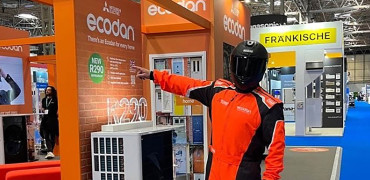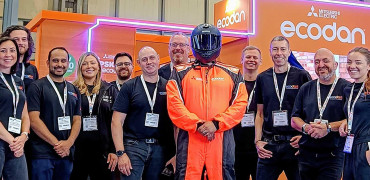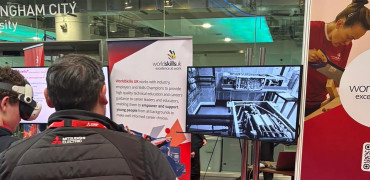There was some excellent news today from the Heat Pump Association (HPA) which published data demonstrating increasing levels of interest in heat pump training in the UK.
The HPA publishes quarterly heat pump qualification data and the figures for the second quarter of 2024 show 2,405 people who have successfully completed a heat pump training qualification – pushing the total to 4,875 for the year so far.
https://www.heatpumps.org.uk/heat-pump-training-qualification-numbers-show-sustained-growth/
According to the HPA, this marks a 14% increase in the number of people being trained over the past six months, compared to the same time last year.
The announcement from the HPA also notes as ‘even more striking’, the jump of 37% in qualifications from Q2 2023 to Q2 2024.
The Chair of the HPA Training Working Group, Laura Thomas, was enthusiastic about this positive trend stating that it reflects “the increasing recognition and value given to heat pumps as a key technology in the UK’s transition to net zero”.
However, I think the story is even better than that.
This allows us to show dangerous situations virtually, reducing any risk
Steady growth
Whilst I think the numbers announced by the HPA are to be applauded, it is worth noting that the data is based on the number of individuals who have successfully completed one of the Heat Pump training courses that are eligible for the Heat Training Grant.
There are far more heating engineers who are now qualified or going through the process of getting qualified than numbers for these grants show, as I can personally testify by the numbers coming on our heat pump training courses.
We now have a three-stage process for training with engineers completing online learning modules to help them understand the basics of how heat pumps work, how Ecodan works, how to commission and install them, and how to maintain them.
These courses can be done at a time to suit the engineer and once completed, they can then join us on a live webinar in our training suite to test their knowledge and ask us ‘experts’ anything.
We can accommodate up to 90 engineers at a time on these online sessions and me and my colleagues must have literally met thousands and thousands since we launched the online learning programme – with more and more seeming to be gas engineers looking to add to their skillset.
Stage three is when engineers can come into our training suites around the country for real-life, hands-on learning, should they need it.
HVAC Gamification
The other thing we have created in the past year is immersive training which allows an engineer to get right inside a heat pump and see all the components and how they interact with each other.
This enables them to ensure that everything is in the right place and see how connections should look.
For us as trainers this immersive situation has an added benefit because it allows us to show dangerous situations virtually, reducing any risk to zero, whilst helping engineers see and understand the dangers involved in installing, commissioning and maintaining HVAC.
The other thing that a VR headset has allowed me and my colleagues to do is to ‘gamify’ HVAC, so that we can take it to schools and colleges and talk to potential future engineers in a way they understand.
And it really is working as we’ve had amazing levels of interest whether we have been at a school, a customer event, or somewhere like the recent Installer Show.
So, whilst the market for heat pumps hasn’t grown as quickly as we all hoped, one thing I’m certain of is that we are recruiting the heat pumps engineers we need to help the nation get back on the right path to net zero.
Steve Clark is a Technical Trainer at Mitsubishi Electric




